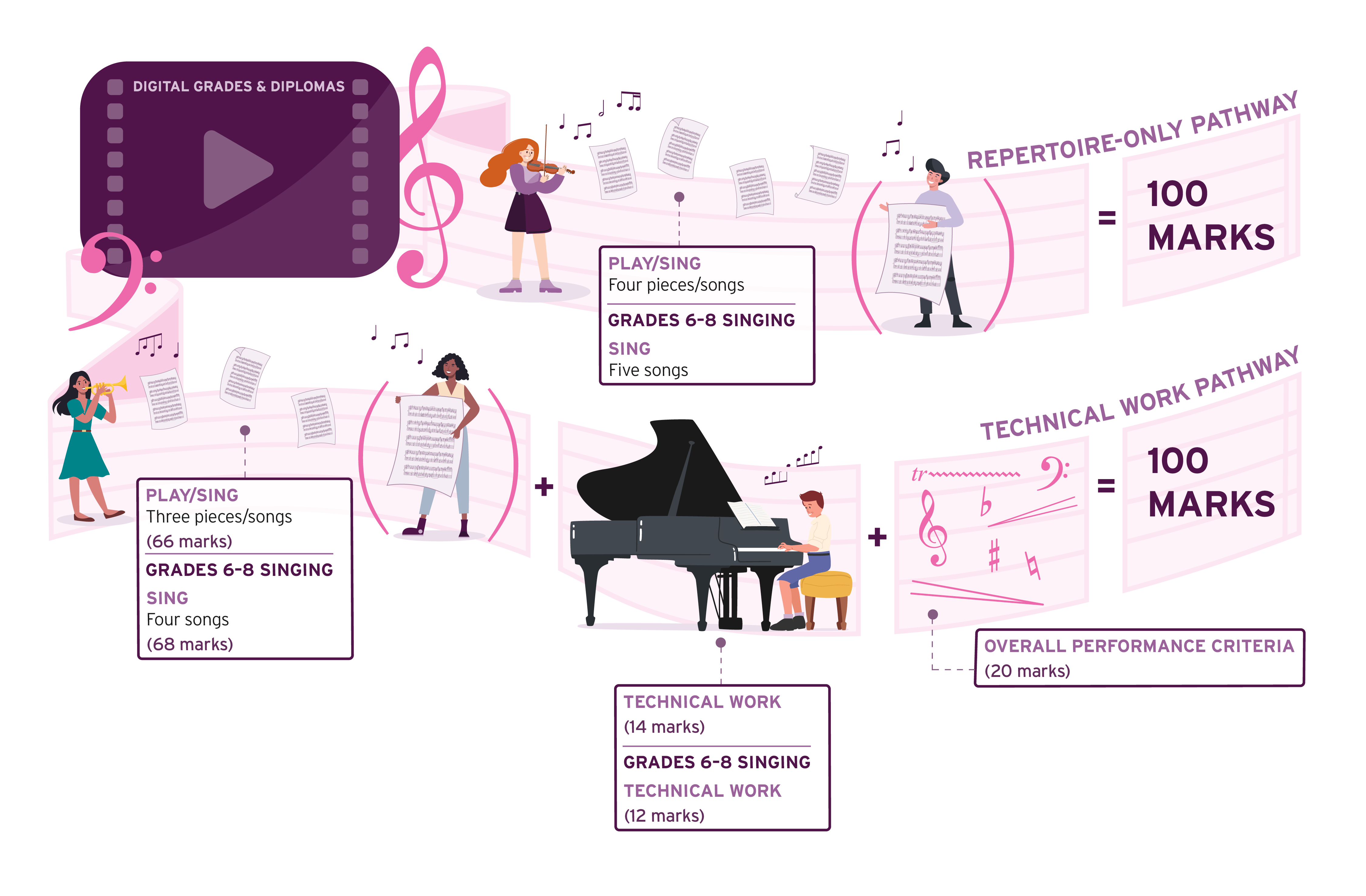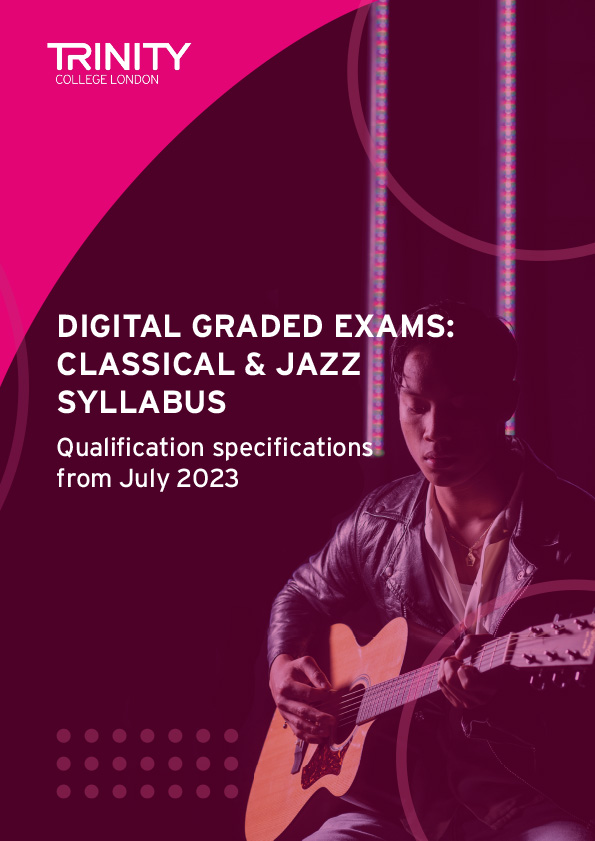New Repertoire-only pathway now available
A new, pieces-only option for all candidates, bringing even further choice and flexibility to the Classical & Jazz Digital Grades. This offers a pathway for those who prefer to showcase their musical achievements through a programme of repertoire instead of a combination of pieces and technical work.
Options for Digital Music Grades
Choose between two pathways:
- Technical Work pathway: Perform three repertoire pieces* as well as technical work and receive a mark for the overall performance (read this blog post by our Director of Music for further details)
OR
- Repertoire-only pathway: Perform four pieces of repertoire*
The exam entry process is exactly the same. Simply select Technical Work or Repertoire-only pathway when making an exam booking, or write the relevant pathway on the entry form if using a paper form.
* in line with current requirements in the Singing syllabus, singers at Grades 6-8 will present four pieces in the Technical Work pathway, and five in the Repertoire-only pathway.
Everything you would expect from Trinity’s unique syllabuses
- Flexible syllabus — Candidates can personalise the exam further by choosing whether to perform with a live accompanist or with backing tracks. It is possible to choose to play a duet for selected instruments up to Grade 3, or even to perform an own composition.
- Online support — A range of free online support resources, produced with professional musicians and educators, help develop performance skills and foster musical knowledge.
Digital exam requirements
The table below summarises the components of each pathway. For full information on the pathways, please see the syllabus for Digital Grades and Diplomas.
Technical Work pathway
Repertoire-only pathway
Three pieces (four for Singing Grades 6-8) from the repertoire lists in the relevant Classical and Jazz syllabus.
(68 Marks, Grades 6-8 Singing)
Four pieces (five for Singing Grades 6-8) from the repertoire lists in the relevant Classical and Jazz syllabus.
The same technical work options as in a face-to-face exam, but with reduced requirements to reflect the selection of technical work that candidates would be asked to perform in a face-to-face exam. Please download details of the technical requirements .
(12 Marks, Grades 6-8 Singing)
(Not applicable)
Candidates will be assessed on how well the musical skills and knowledge that underpin the supporting tests are demonstrated within the context of their entire performance (ie the pieces and technical work). Please see the syllabus and the Overall Performance Criteria page for further information.
(Not applicable)
TOTAL
TOTAL
To understand the exam requirements, you will also need the relevant syllabus and repertoire lists for your instrument:
Piano Singing Strings Classical Guitar Acoustic Guitar Brass Woodwind and Jazz Woodwind Drum Kit & Percussion Electronic Keyboard & Organ
Candidates taking the Technical Work pathway will also need to read the Technical Work Details.
What you need to do next
- Select your pieces from the relevant syllabus
- Select your technical work group (Technical Work pathway only)
- Scan or take photos of your pieces (please refer to the guidance here)
- Watch the Filming Guide video and check the Filming Guidance document for video requirements. Piano candidates should also read the Piano Requirements document.
- Record and submit your video with any scans of your pieces to Trinity using the online submission platform
And also check:
- Guidance for candidates with special needs and disabilities (if applicable).

